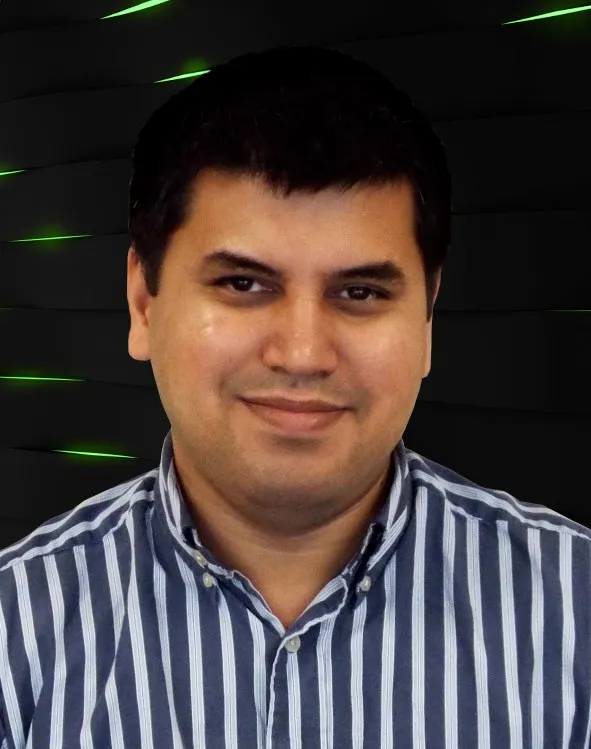Dr. Vibhav Gogate Appointed Program Chair for the Conference on Uncertainty in Artificial Intelligence (UAI’19)

This July, Dr. Vibhav Gogate, UT Dallas CS Professor and Co-Director of the UT Dallas Center for Machine Learning, will be serving as program chair for the 2019 Conference on Uncertainty in Artificial Intelligence (UAI) in Tel Aviv, Israel. This conference is one of the premier international conferences on research related to knowledge representation, learning, and reasoning in the presence of uncertainty. Principles and applications developed within the UAI community have been at the forefront of research in Artificial Intelligence. The UAI community and through its annual meeting have been primary sources of advances in graphical models for representing and reasoning with uncertainty. The umbrella organization for UAI Conference is the Association for Uncertainty in Artificial Intelligence (AUAI).
Since 1985, the UAI Conference has been the primary international forum for presenting new results on the use of principled methods for reasoning under uncertainty within intelligent systems. The scope of the conference is wide, including, but not limited to, representation, automated reasoning, learning, decision making, and knowledge acquisition under uncertainty. The UAI conference is held annually in the summer, usually in temporal or physical proximity to other significant AI conferences, such as AAAI, ICML or IJCAI. The UAI conference typically includes plenary presentations and poster presentations. Brief poster spotlights accompany poster presentations during the plenary meeting. In a poster spotlight, authors have the opportunity to give a two-minute overview of their results to encourage attendance at their poster during the poster sessions. Authors of both plenary and poster presentations publish full-length papers in the archival UAI proceedings.
As program co-chair, Dr. Gogate will be overseeing the conference logistics with Dr. Ryan P. Adams of Princeton University. The technical program is the responsibility of the program co-chairs who subsequently select the senior program committee members as well as the program committee members. All paper submissions are assigned three reviewers from the program committee and one senior program committee member. After the reviewers complete their written reviews, the senior program committee member moderates the discussion of the paper among reviewers. Based on the reviews and discussion, the senior program committee member makes a recommendation for action on the paper to the program chairs. The conference has a 26% acceptance rate with 450 submissions and 118 accepted papers.
Dr. Vibhav Gogate’s research interests include Machine learning, Artificial Intelligence, Data Mining, and Big Data. His current research focuses include Probabilistic Graphical Models, Statistical Relational Learning, and Probabilistic Programming. Dr. Gogate serves as the co-director for the newly inaugurated UT Dallas Center for Machine Learning. In 2017, Dr. Gogate earned a National Science Foundation Faculty Early Career Development (CAREER) Award for his work to improve a type of computer algorithm used in artificial intelligence and machine learning. His CAREER Award supports his work to develop new scalable approaches for learning and inference in Markov Logic Networks (MLNs). Drs. Vibhav Gogate and Nicholas Ruozzi recently had their project on Explainable AI (XAI), one of the major thrusts of research in machine learning, funded by Defense Advanced Research Projects Agency (DARPA) for $1.8 million. This project aims to improve upon current state-of-the-art machine learning techniques (e.g., deep neural networks) that produce models that require a large number of learned parameters and a significant amount of hyper-parameter tuning. Drs. Gogate and Ruozzi’s project will develop a unified approach for explainable AI, based on tractable probabilistic logic models (TPLMs), which are a powerful family of representations that they have evolved over the past few years. Read more about this project by clicking here.
ABOUT THE UT DALLAS COMPUTER SCIENCE DEPARTMENT
The UT Dallas Computer Science program is one of the largest Computer Science departments in the United States with over 2,800 bachelors-degree students, more than 1,000 master’s students, 190 Ph.D. students, 52 tenure-track faculty members, and 41 full-time senior lecturers, as of Fall 2018. With The University of Texas at Dallas’ unique history of starting as a graduate institution first, the CS Department is built on a legacy of valuing innovative research and providing advanced training for software engineers and computer scientists.




